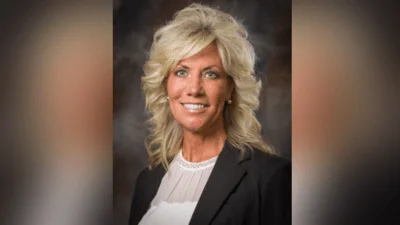Scott Krug, Wisconsin State Representative for 72nd District | www.facebook.com
Scott Krug, Wisconsin State Representative for 72nd District | www.facebook.com
According to the Wisconsin State Legislature's official website, the bill was described as follows: "compliance with the federal Electoral Count Reform Act. (FE)".
The following is our breakdown, based on the actual bill text, and may include interpretation to clarify its provisions.
In essence, the bill aims to align Wisconsin's election procedures with the federal Electoral Count Reform Act (ECRA), establishing rigorous timelines for canvassing, recounts, and certification of presidential electors. It mandates the Wisconsin governor to issue a certificate of ascertainment of electors no later than six days before electors meet. The bill specifies adjustments to municipal and county canvassing deadlines, ensuring recounts start quicker and appeals are expedited. For presidential elections, recount requests must use electronic communications, and recount appeals go directly to the Wisconsin Supreme Court within one business day, with decisions expected rapidly. Additionally, the Elections Commission must publish deadlines for election-related events online. The changes apply starting with the 2028 general election.
The bill was co-authored by Sen. Dan Feyen (Republican-20th District), Rep. Elijah R. Behnke (Republican-6th District), Rep. Barbara Dittrich (Republican-99th District), Rep. Chanz J. Green (Republican-74th District), and Rep. Rob Kreibich (Republican-28th District). It was co-sponsored by Sen. Romaine Robert Quinn (Republican-25th District), along with three other co-sponsors.
Scott Krug has co-authored or authored another 44 bills since the beginning of the 2025 session, with none of them being enacted.
Krug graduated from the University of Wisconsin at Green Bay in 2008 with a BAS and again in 1999 from Mid-State Technical College with an AA.
Krug, a Republican, was elected to the Wisconsin State Assembly in 2011 to represent the state's 72nd Assembly district, replacing previous state representative Marlin D. Schneider.
In Wisconsin, the legislative process starts when a senator, constituent, group, or agency proposes an idea for a bill. After drafting, the bill is introduced, numbered, and referred to a committee for review and public input. If approved, it moves through three readings and votes in both the Senate and Assembly. Once both chambers pass the same version, the bill goes to the governor, who can sign it, veto it, or let it become law without a signature. Only a small share of bills introduced each session ultimately become law. You can learn more about the Wisconsin legislative process here.
| Bill Number | Date Introduced | Short Description |
|---|---|---|
| AB374 | 07/17/2025 | Compliance with the federal Electoral Count Reform Act. (FE) |
| AB327 | 07/08/2025 | The weight limit for utility terrain vehicles |
| AB312 | 06/06/2025 | Hours for voting by absentee ballot in person at the office of the municipal clerk or an alternate site. (FE) |
| AB202 | 04/17/2025 | Voidable provisions in residential rental agreements and the application of the Wisconsin Consumer Act to leases. (FE) |
| AB195 | 04/15/2025 | Revoking a transfer of real property on death, obtaining evidence of the termination of a decedent’s property interests, disbursing deposits after rescission of real property wholesaler contracts, and filing satisfactions of judgment |
| AB183 | 04/15/2025 | Standard industrial classification codes for linen supply and industrial launderers and modifying the manufacturing and agriculture tax credit. (FE) |
| AB177 | 04/15/2025 | Sales and use tax exemption for diapers and feminine hygiene products. (FE) |
| AB154 | 04/02/2025 | Use of certified seed potatoes in planting potatoes and providing a penalty. (FE) |
| AB128 | 03/11/2025 | Requiring first responders to be trained to administer epinephrine delivery systems. (FE) |





 Alerts Sign-up
Alerts Sign-up